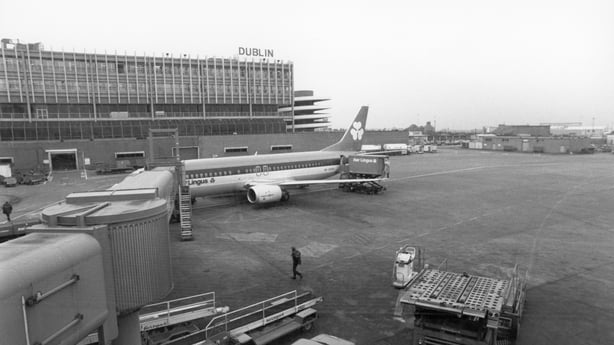By David McCullagh, Justin McCarthy and Fiachra Ó Cionnaith
One tenth of Irish people given visas to the United States on the personal guarantee of TDs and senators in the early 1990s illegally stayed on in America.
Under a secret "special channel", politicians were able to intervene with the US Embassy to help secure non-immigrant visas for constituents, some of whom had already been refused by consular officials.
Personal guarantees from politicians were given considerable weight by embassy staff when deciding on whether to grant a visa, and in some cases led to a reversal of a decision to turn down an application.
However, when a new American Ambassador, William FitzGerald, arrived in Dublin in June 1992, he expressed "serious reservations" when he was told about the "special channel".
There were three problems with the system from the American point of view.
The first was that it was completely unofficial and went against Department of State regulations.
Consul General James Callahan said US immigration law did not allow his staff to suspend their judgement just because of the intervention of a politician.
He wrote: "Personal guarantees, even by members of US and foreign legislative bodies, may only be considered in the context of all other factors bearing on the adjudication of the application."
The second problem was that such a large proportion – one tenth – of successful visa applicants guaranteed by members of the Oireachtas had breached the terms of their permission to visit the United States.
The third problem was that while the existence of the "special channel" was supposed to be confidential, it appeared to be an open secret in Ireland.

According to officials in the Embassy, many applicants told staff that if they were refused a visa, they would be back with a letter from their TD and get one that way.
Even worse from the American point of view, one TD went public about the supposedly confidential arrangement in the media in June 1992.
This led to the cancellation of the system – though not without pushback from the Irish side.
Government Chief Whip Noel Dempsey claimed that members of the Oireachtas were being victimised by the decision.
In response to these complaints, Consul General Callahan said the Embassy would still consider letters of support from politicians – but they would be "only one element of the application and will not, in and of themselves, guarantee visa issuance."
The following November, the system was further tightened up, when the Embassy stopped giving public representatives detailed explanations of why individual visa applications had been refused.
Callahan explained that having to respond to several hundred inquiries and follow-up questions was having an impact on the Embassy's workload.
Meanwhile, the Embassy rejected complaints from Irish politicians that US consular officials were rude to visa applicants.
After the issue was raised by the Department of Foreign Affairs, a US diplomat quoted one of his colleagues, who said the staff in the Dublin Embassy were the most polite he had seen in his 35-year career.
The diplomat pointedly added: "I take these observations far more seriously than I do anecdotal references by foreign politicians who have no understanding of US law or its process."
[2022/23/1994]

